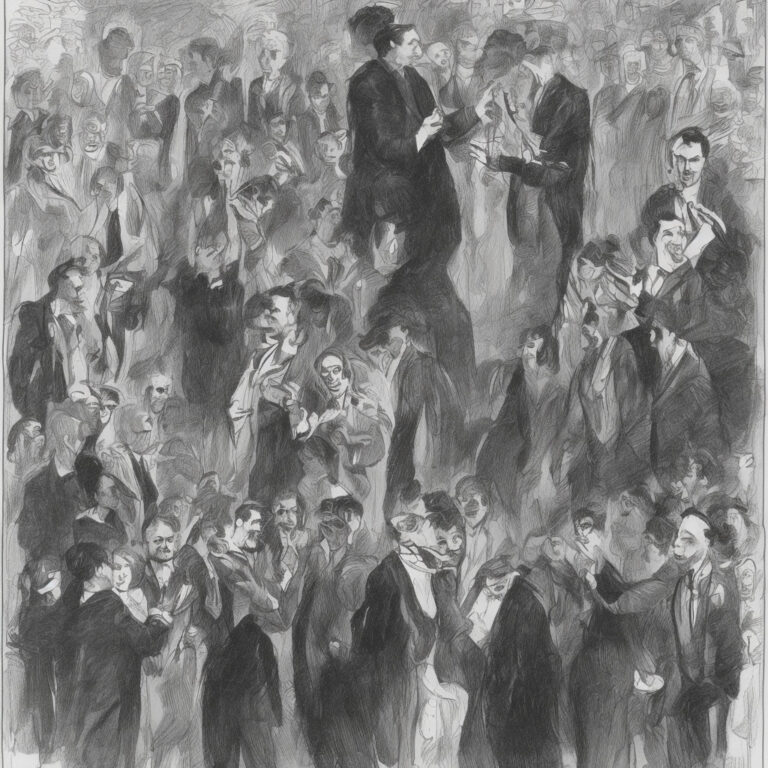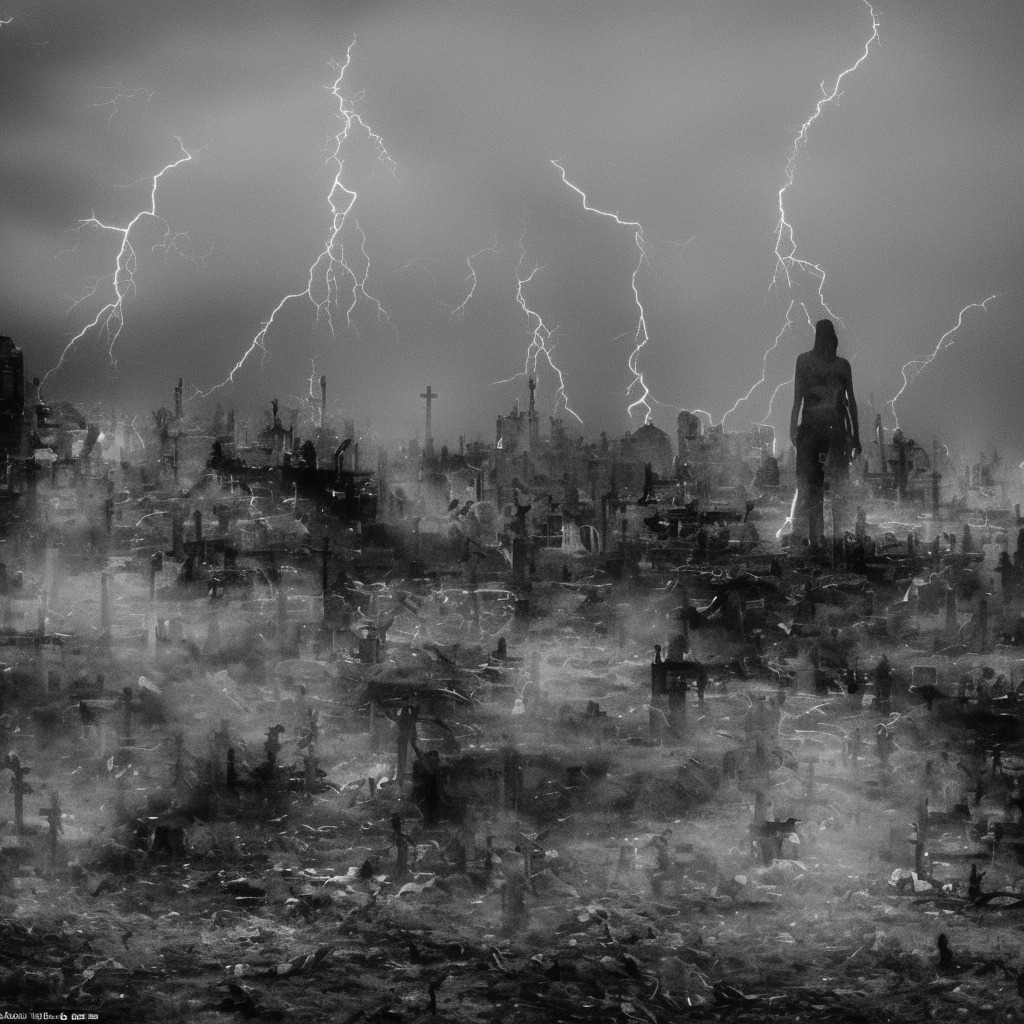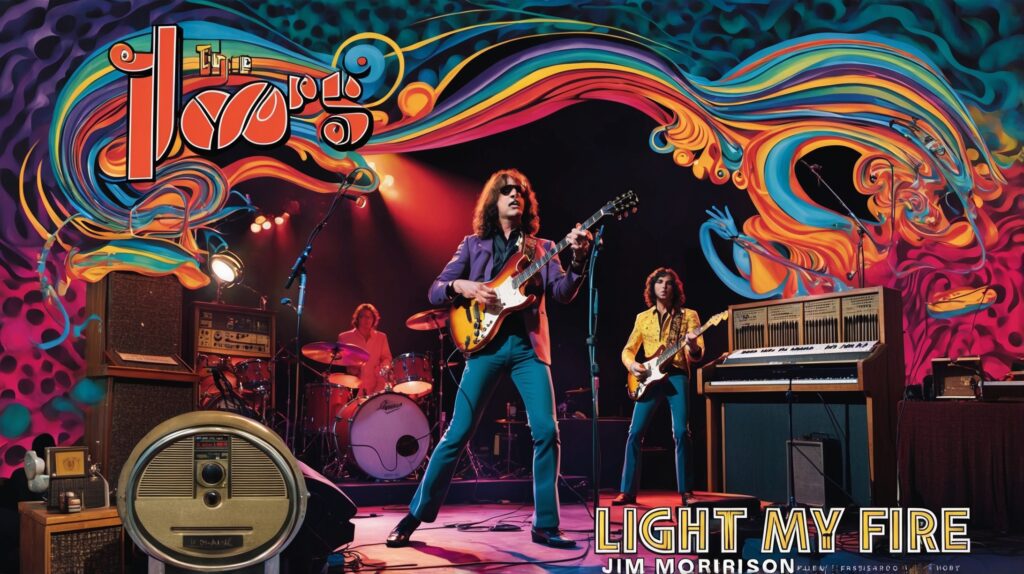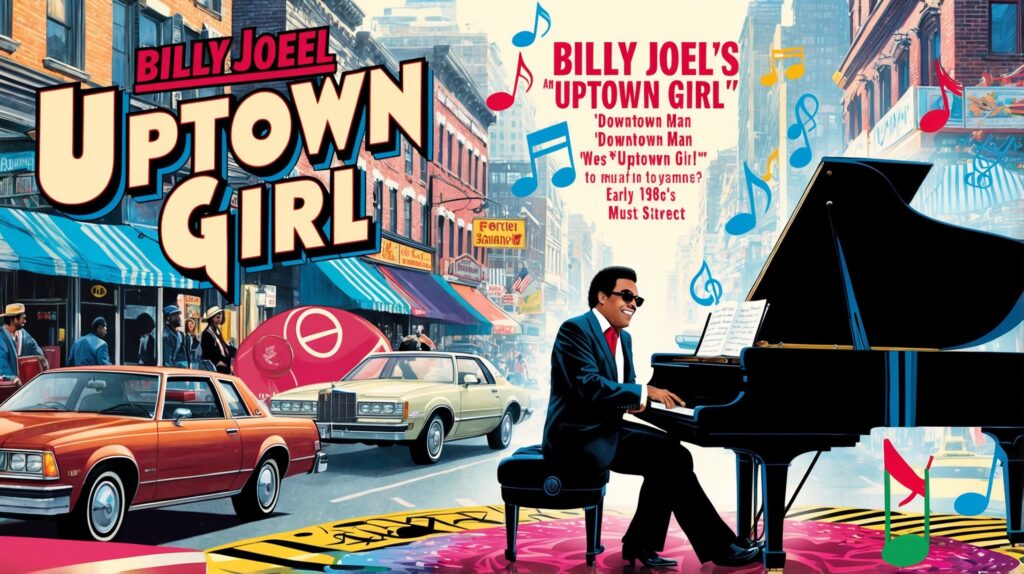🎵 Did you know #TheSmiths’ iconic “Heaven Knows I’m Miserable Now” was inspired by a Sandie Shaw B-side? The title’s a cheeky twist on her “Heaven Knows I’m Missing Him Now”! Talk about clever wordplay! 🙌 #MusicTrivia #80sVibes #MorrisseyMagic Read about it: tinyurl.com/2vb6svn5
The Unmistakable Sound of The Smiths: Digging Deep into Heaven Knows I’m Miserable Now
Dive into the melancholic brilliance of The Smiths’ “Heaven Knows I’m Miserable Now,” a timeless jangle pop-infused anthem that defined their influential and unmistakable sound.

When it comes to the influential bands of the 1980s, The Smiths indisputably defy convention, standing in a league of their own. Formed in Manchester, England in 1982, the band consisted of lead vocalist Morrissey, guitarist Johnny Marr, bassist Andy Rourke, and drummer Mike Joyce. Combining Morrissey’s distinct voice and introspective lyrics with Marr’s jangle pop guitar sound, The Smiths established an unmistakable signature style that set them apart from their contemporaries.
Their 1984 single “Heaven Knows I’m Miserable Now” is no exception. This track, produced by the legendary John Porter, is imbued with the characteristic melancholy that permeates much of The Smiths’ discography. Morrissey’s clever wordplay revolves around themes of disillusionment, boredom, and the search for happiness in a bleak world. While the lyrics wallow in self-pity, Marr’s vibrant and upbeat guitar work creates a contrasting sense of optimism. This juxtaposition is a prime example of the band’s ability to inject levity into otherwise somber subject matter.
The Smiths released four full-length albums during their short but prolific career, which ended with an acrimonious split in 1987. Despite their breakup, they left a lasting impression on the alternative music scene and influenced countless bands that followed. They were inducted into the UK Music Hall of Fame in 2005, and Rolling Stone magazine ranked them number 22 on their list of the “100 Greatest Artists of All Time” in 2008.
On the flip side, one cannot ignore the controversies surrounding Morrissey, particularly in recent years. His outspoken political views and statements have drawn much criticism and led to a divide amongst fans. While some continue to embrace his artistic genius, others have distanced themselves from the former frontman.
As an experienced music blogger, it’s essential to maintain a neutral stance and appreciate The Smiths’ contribution to the realm of alternative music. “Heaven Knows I’m Miserable Now” is a testament to the unique fusion of jangle pop, indie rock, and post-punk elements that defined The Smiths’ sound. The band’s enduring influence is a testament to their wide-ranging impact and the timeless quality of their music.
Charting the Journey of a Classic Tune
“Heaven Knows I’m Miserable Now”: The Smiths’ melancholic anthem that skyrocketed to chart success, becoming an eternal favorite in 80s alternative music.

When it comes to chart success, “Heaven Knows I’m Miserable Now” holds a significant place in The Smiths’ discography. Released on May 21, 1984, as the second single from their eponymous debut album, it became an instant favorite amongst their growing fanbase.
The song made its initial entry into the UK Singles Chart at number 35, a considerable achievement for a band that was still relatively new to the mainstream music scene. Over the next few weeks, “Heaven Knows I’m Miserable Now” steadily climbed the charts, fueled by the band’s dedicated fan following and the undeniable appeal of their unique sound.
Peak chart position for this melancholic anthem came on June 9, 1984, when it reached number 10, marking The Smiths’ first-ever appearance in the UK Top 10. This was certainly an impressive feat for a band that had only released their debut album a few months prior. The song remained in the Top 10 for two weeks before slowly descending the charts, but its impact was already well-established.
As for chart trivia, “Heaven Knows I’m Miserable Now” has the distinction of being one of only two singles by The Smiths to reach the UK Top 10, the other being “This Charming Man.” The song also placed at number 13 on the New Musical Express (NME) end-of-year chart for 1984, adding to its list of accolades.
Over the years, the song’s popularity has endured, often being cited by critics and fans alike as one of The Smiths’ finest works. Its chart success, coupled with the acclaim it continues to receive, cements “Heaven Knows I’m Miserable Now” as an essential part of The Smiths’ legacy and an iconic piece of 80s alternative music.
Dissecting the Depths of Despair in Lyrics
I was happy in the haze of a drunken hour
But heaven knows I’m miserable now
I was looking for a job, and then I found a job
And heaven knows I’m miserable now
In my life
Why do I give valuable time
To people who don’t care if I live or I die?
Two lovers entwined pass me by
And heaven knows I’m miserable now
I was looking for a job, and then I found a job
And heaven knows I’m miserable now
In my life
Oh, why do I give valuable time
To people who don’t care if I live or I die?
What she asked of me at the end of the day
Caligula would have blushed
“You’ve been the house too long,” she said
And I naturally fled
In my life
Why do I smile
At people who I’d much rather kick in the eye?
I was happy in the haze of a drunken hour
But heaven knows I’m miserable now
“Oh, you’ve been in the house too long,” she said
And I naturally fled
In my life
Oh, why do I give valuable time
To people who don’t care if I live or I die?
“Heaven Knows I’m Miserable Now,” released by The Smiths in 1984, paints a vivid picture of bitter dissatisfaction and disillusionment. The song’s lyrics embody the spirit of the time, reflecting the economic and societal struggles that defined the era. Many young adults in the mid-1980s were grappling with issues such as unemployment and societal expectations, and this song captures those feelings.
The lyrics convey a sense of hopelessness and despair, as the protagonist goes from experiencing brief happiness (“I was happy in the haze of a drunken hour”) to suffering unending misery (“But heaven knows I’m miserable now”). The song’s protagonist seems to be stuck in a cycle of disappointment and a lack of fulfillment, as evidenced by the lines “I was looking for a job, and then I found a job / And heaven knows I’m miserable now.”
Furthermore, the song touches on the protagonist’s emotional turmoil and the emotional toll of navigating personal relationships (“In my life / Why do I give valuable time / To people who don’t care if I live or I die?”). The lyrics also allude to feelings of alienation and a desire to distance oneself from unsatisfactory situations or relationships, as seen in the lines “You’ve been in the house too long, she said / And I naturally fled.”
Overall, the lyrics of “Heaven Knows I’m Miserable Now” encapsulate the disillusionment and frustration of a generation faced with economic hardship, societal expectations, and the subsequent emotional turmoil these circumstances brought about. By expressing these emotions through the lens of their signature blend of melancholy and wit, The Smiths gave voice to the many who felt similarly adrift during that time.
A Visual Journey Through Melancholy: The Music Video for “Heaven Knows I’m Miserable Now”
Dive into the visually striking world of melancholy with fan-made music videos for The Smiths’ iconic anthem, “Heaven Knows I’m Miserable Now.”
Despite the massive success and popularity of “Heaven Knows I’m Miserable Now” by The Smiths, the song did not have an official music video. However, this did not deter fans from using their creativity and influence to create their own music videos and tributes that resonated with the song’s themes of melancholy and self-deprecation.
One such notable instance is a fan-made video uploaded to YouTube in 2010 by user ‘itsmartinwallström.’ This particular video gained significant traction, amassing over 3 million views, and features footage from the 1965 French film “Pierrot le Fou” directed by Jean-Luc Godard. The juxtaposition of the film’s visuals and The Smiths’ anthem of misery creates a unique viewing experience that showcases the universal appeal of the song’s themes.
Another notable example of a fan-made video for “Heaven Knows I’m Miserable Now” comes from the YouTube channel ‘synthp0p’ which took a different creative approach. This video, uploaded in 2009, features a montage of black-and-white stills of Morrissey and The Smiths, accompanied by the song’s lyrics displayed in a vintage typewriter font. The simplistic approach of this video allows the viewer to focus on the poignancy of Morrissey’s lyrics, further emphasizing the song’s deep emotional impact.
For those interested in exploring various artistic interpretations of “Heaven Knows I’m Miserable Now,” there are countless other fan-made videos, covers, and tributes available on various online platforms. These examples pay homage to the lasting impact that The Smiths have had on popular culture and the music industry, proving that a song does not necessarily need an official music video to elicit powerful visual interpretations from its listeners.
A Deep Dive into the Composer’s Mind: Johnny Marr
When it comes to the composition of “Heaven Knows I’m Miserable Now,” one must tip their hat to the genius behind the music, Johnny Marr. As a co-founder of The Smiths, Marr was responsible for the band’s unique sound, contributing some of the most iconic and memorable guitar work of the 1980s. Alongside his creative partnership with Morrissey, Marr’s fingerprints can be found on a plethora of other renowned songs, such as “This Charming Man,” “How Soon Is Now?,” and “There Is a Light That Never Goes Out.” His distinctive style, involving jangly arpeggios, shimmering chords, and intricate melodies, have made his compositions instantly recognizable and widely celebrated. Even after leaving The Smiths, Marr continued to impress the music world with his collaborations with various artists and bands like The Pretenders, Modest Mouse, and The Cribs, further solidifying his status as an influential and versatile composer. So, the next time you find yourself immersed in the melancholic beauty of “Heaven Knows I’m Miserable Now,” remember to appreciate the artistry flowing from Johnny Marr’s six strings.
A Legacy of Miserable Success
“Heaven Knows I’m Miserable Now”: A timeless alt-rock classic that transcends music, leaving its mark on pop culture, inspiring artists, and resonating with audiences across generations.

Since its release in 1984, “Heaven Knows I’m Miserable Now” has earned a firm place in the annals of alternative rock history. Apart from climbing to number ten on the UK Singles Chart, the track has garnered various accolades over the years. It was also recognized in the NME’s 500 Greatest Songs of All Time list, where it ranked at 227, further cementing its status as an enduring classic.
The song’s profound impact is not limited to the music industry, as its influence has spilled into pop culture as well. “Heaven Knows I’m Miserable Now” has been featured in several movies, tv shows, and video games, exposing new audiences to its timeless appeal. For instance, the track made an appearance in the 2004 film “500 Days of Summer,” a cult classic romantic drama that resonated with indie enthusiasts. Furthermore, the song was included in the soundtrack of the popular video game franchise “Grand Theft Auto,” specifically in the fourth installment, “Grand Theft Auto IV,” on the in-game radio station Radio Broker.
Over the years, several artists have been inspired by this iconic song, creating their own cover versions that pay homage to The Smiths’ original creation. Among these covers, Vitamin String Quartet’s rendition stands out, giving the song a new dimension with their instrumental take. Indie pop duo Tegan and Sara also delivered a compelling cover of “Heaven Knows I’m Miserable Now” during a live performance, adding their signature style to the classic track.
It is evident that “Heaven Knows I’m Miserable Now” has left an indelible mark on the music landscape and popular culture over the years, and its legacy shows no signs of waning. From topping the charts to inspiring other artists to creating memorable moments in movies, tv shows, and video games, this song’s impact goes far beyond the grooves of the vinyl it was first pressed into.
Dissecting the Musical Anatomy
“Heaven Knows I’m Miserable Now” has a unique musical structure that sets it apart from other songs in The Smiths’ discography. The song is written in the key of C Major, a relatively common key for pop music, but it’s the way the chords and tempo are arranged that gives it its signature sound.
The chord progression follows a IV-I-ii-V pattern, meaning it starts on the fourth degree of the scale (F), moves to the first degree (C), then to the second degree (Dm), and finally to the fifth degree (G). This progression is repeated throughout the song, giving it a sense of movement and resolution. The verse and chorus sections have a similar structure, with the chorus featuring a slight variation in the chords used.
The tempo of the song is set at a moderate pace of around 116 beats per minute (BPM), which is a common tempo for indie-rock songs, allowing for both energetic and emotive performances. The rhythm section, consisting of drums and bass, provides a solid foundation for the song, with the bass playing a melodic role in the intro and verse sections, while the drums maintain a steady beat that drives the song forward.
The guitar work in “Heaven Knows I’m Miserable Now” is truly noteworthy. Guitarist Johnny Marr employs a technique known as “arpeggiating,” which involves playing individual notes of a chord in a specific pattern, rather than strumming the entire chord. This technique results in a jangly, textured sound that has become synonymous with The Smiths’ style. The guitar is also responsible for the memorable riff that plays during the intro and outro of the song, further showcasing Marr’s skill and creativity.
The vocal melody in “Heaven Knows I’m Miserable Now” is quite distinct, with Morrissey’s signature crooning style taking center stage. The melody is primarily based on the C Major scale, with occasional chromatic passing tones to add tension and interest. The range of the melody is relatively narrow, staying within an octave, which allows Morrissey’s emotive vocal delivery to shine through without being overshadowed by the instrumental backing.
Overall, the combination of unique chord progressions, arpeggiated guitar work, and Morrissey’s distinct vocal style makes “Heaven Knows I’m Miserable Now” a standout track in The Smiths’ catalog. The song’s musical structure serves as a testament to the band’s ability to push the boundaries of pop music while still maintaining their signature sound.







